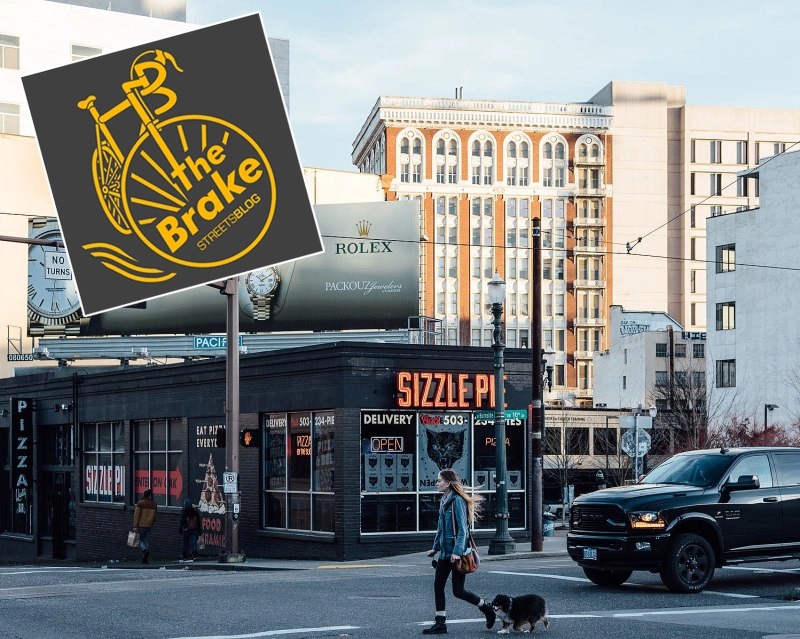Countless communities across America say they're planning for a future where more residents walk, bike, and roll to get around. So why do transportation leaders spend so much time drafting "pedestrian master plans" and "bike master plans" without accompanying "car master plans" aimed at building a world where fewer people get behind the wheel?
Today on The Brake, we're joined by urban planner, community organizer and all around rad person Cathy Tuttle, who actually sat down and wrote a car master plan for her own city of Portland. And she hopes that advocates and transportation leaders in other communities will follow her lead — because if they don't, she argues, we'll never truly reckon with the impact of car dependency on our communities, much less chart an effective strategy to dismantle it.
Give it a listen here, on Apple Podcasts, or anywhere else you listen, and check out a deep dive into a particularly fascinating section of Tuttle's plan that introduces a new framework for understanding why people drive the way they do on U.S. roads.
Not an audio person? Here's a lightly edited excerpt from the podcast:
Kea Wilson: Let's start with the big picture. For folks who aren't familiar, what is it a car master plan, and why don't U.S. cities already have them?
Cathy Tuttle: That's a really good question, Kea. I've been working in the arena of active transportation planning for decades, and I realized that there wasn't anything like a car master plan [out there.] That motivated me to do it.
I think we don't look at cars as anything other than the thing that we have to plan around when we plan. Our bike plans, our pedestrian master plans, are frequently structured] around cars, and I think that's a mistake. I think we really need to step back and look at cars as just another system. By just assuming that cars are an element in of environment that is unfixed and unchanging, we do ourselves a disservice.
Wilson: What advice do you have for people who want to use the blueprint you set out for Portland to write car master plans in their own communities, create something that is really going to help them tackle the issue of car dependency in a meaningful way
Tuttle: I guess the first thing I want people to do if they're going to do a car master plan for their own cities — and I hope other cities do step up and start doing them — is to step back and say, 'you know, let's really look at this space.' ... I mean, you can be in the most beautiful place and not even see the cars, because they're all around us. We have to start opening our eyes and look at the car, and pay attention to these spaces as spaces, rather than as car spaces.
I don't think cities are doing that right now. They're looking at streets, and they're making the assumption that all streets are car streets. And that space is taken from car streets to be given to walking out of compassion. [We do this] instead of looking at street as public space and then adding back in things that need to be added back in – whether that's freight loading zones or bus lanes or places for children to play, or streets that actually allow businesses to flourish, or housing...Instead, the assumption is that all public space belongs first to cars, and at best, we will extract the cars and give public space back [to people].






